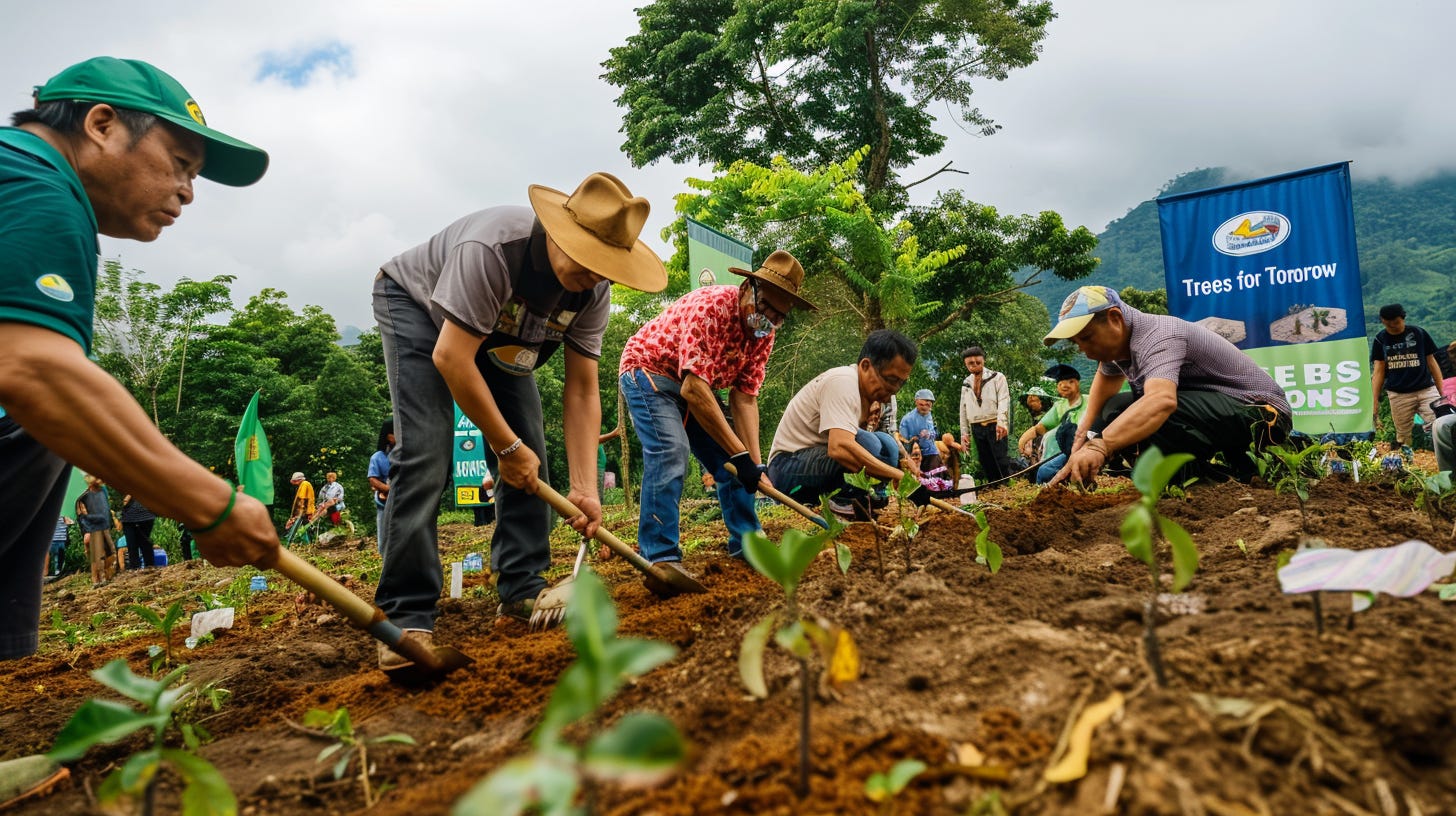Illegal Logging Syndicate Sponsors Reforestation Effort for PR Makeover
JAKARTA — An organization implicated in extensive illegal logging activities in Indonesia has launched a high-profile reforestation campaign. The initiative, announced at a ceremony in Jakarta, has sparked widespread debate and skepticism. The syndicate, known as "Green Horizon," claims the effort is part of a new corporate responsibility program aimed at restoring degraded forests. However, critics argue that the move is a transparent attempt to rehabilitate the group's tarnished image.
Green Horizon, allegedly responsible for deforestation across vast tracts of Indonesia's tropical rainforests, unveiled its reforestation project last week. The campaign, branded "Trees for Tomorrow," aims to plant one million trees over the next five years. The initiative was launched with a high-profile event featuring local celebrities and government officials. The group's spokesperson, Agung Pratama, emphasized their commitment to environmental conservation, stating, "We recognize our past mistakes and are dedicated to making a positive impact on Indonesia's forests."
Yet, environmental organizations and watchdog groups remain unconvinced. The Indonesian Forum for the Environment (WALHI) issued a statement condemning the move as "greenwashing"—a tactic where companies portray themselves as environmentally friendly to distract from their harmful practices. WALHI's spokesperson, Maya Kartika, remarked, "It's ironic and deeply concerning that an entity with such a destructive track record is now positioning itself as an environmental champion."
The reforestation effort, while seemingly positive, raises questions about its execution and intentions. Green Horizon has been linked to illegal logging activities that have devastated ecosystems and displaced indigenous communities. Critics argue that the company’s sudden environmental advocacy lacks credibility, pointing out that the promised one million trees are a fraction of the forest area lost due to their activities.
Moreover, the funding and logistical support for the reforestation project have not been fully disclosed. There are concerns about the selection of tree species, potential monoculture plantations, and the involvement of local communities in the project. "Planting trees is a complex ecological task, not just a PR exercise," said Dr. Sinta Wijaya, a forestry expert at Gadjah Mada University. "The focus should be on restoring biodiversity and supporting local communities, not just numbers."
The Indonesian government's reaction to Green Horizon's campaign has been mixed. While some officials have welcomed the initiative as a positive step towards environmental recovery, others have expressed reservations. The Ministry of Environment and Forestry has yet to release an official stance on the project. However, a ministry insider, speaking anonymously, indicated concerns about the company's sincerity and long-term commitment.
Public opinion is similarly divided. Social media has been abuzz with discussions about the reforestation effort. Some netizens appreciate any step towards conservation, regardless of the source, while others accuse Green Horizon of attempting to "buy" a cleaner image. "This feels like a publicity stunt," commented one Twitter user. "They've done so much damage; a few trees won't make up for it."
As Green Horizon's reforestation campaign unfolds, the spotlight remains on the company's true intentions. Environmental experts stress the need for transparency and accountability in such initiatives. "If Green Horizon is serious about environmental restoration, they must commit to long-term, community-driven projects and rectify past damages," said Kartika from WALHI. "Otherwise, this is just a facade."
Corrections & Amplifications:
An earlier version of this article misstated the name of Green Horizon's reforestation project as "Tomorrow's Trees." The correct name is "Trees for Tomorrow."



